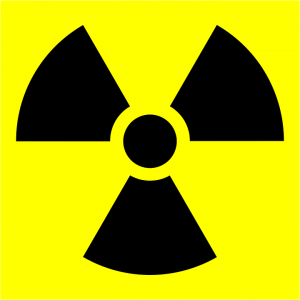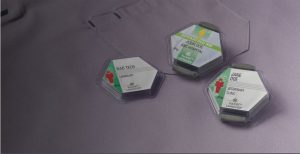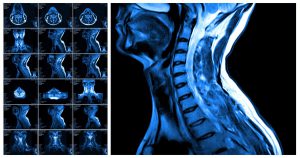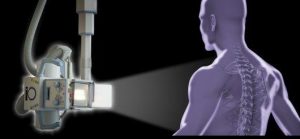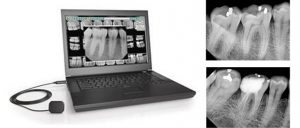The Regional Radiation Protection Service (RRPS) based in the Department of Medical Physics at the Royal Surrey County Hospital (RSCH) is one of the major radiation protection services in the Country, providing comprehensive radiation protection and diagnostic radiology physics services inside and outside the NHS.
Services are provided to over 300 radiation users including local NHS Hospital Trusts, the NHS Breast Screening Programme, independent hospitals, clinics, corporate health providers across the UK, dentists, vets and industry.
The RRPS comprises an expert team of physicists, clinical technologists and healthcare science practitioners working closely together. Their offices are in the St Luke’s Wing of the RSCH where facilities include an X-ray laboratory, imaging laboratory and dose monitoring laboratory, together with an extensive array of radiation survey and X-ray testing equipment which is calibrated in accordance with necessary standards.
The following services can be offered by the radiation protection service:
- Radiation Protection Adviser (RPA)
- Laser Protection Adviser (LPA)
- Medical Physics Expert (MPE) in Radiology, Cardiology and Dental radiology
- MR Safety Expert (MRSE)
- Radiation Waste Adviser (RWA)
- Dental maintenance scheme to GP dentists
- Regional mammography Physics support to the NHSBSP
- Expert scientific support in radiation protection, radiography, fluoroscopy, digital imaging, CT, MRI, mammography, dental radiography and non-ionising radiation protection
- RPA and MPE support for Research Projects in diagnostic radiology
Current interests and projects include:
- Digital mammography optimisation of dose and image quality. Development of protocols for routine performance checks and commissioning checks
- Digital dental
- Routine performance measurements efficiency and standards
- Dental diagnostic reference levels
- Quantitative image quality analysis for digital systems including digital radiography, digital mammography and CT
- MRI QC measurements, protocols and automatic analysis
- Staff doses; frequency of measurement, reassurance monitoring and interventional work, including eye dosimetry
- PET/CT design and staff doses during routine operation
- Radiotherapy bunker design and attenuation properties of materials
- Patient dose in CT and complex radiological procedures and optimisation of procedures
- Remote QC
The services offered by the RRPS are as follows:
1. Personnel Radiation Monitoring
As part of our RPA service staff radiation doses are monitored. Many of our customers deal directly with a personnel radiation dose monitoring service provider (e.g. Mirion, UKHSA, Landauer) who will then forward to us the dose reports. Regular reports of doses received by staff are monitored by experienced members of the RRPS team and local Radiation Protection Supervisors are immediately informed if there is any cause for concern. Otherwise we keep a copy for our records and then forward the report to the customer. We keep records in order to be able to complete annual staff dose reports for our customers and to monitor trends in staff doses to ensure that they remain within acceptable limits. We liaise with monitoring service providers (Mirion, NRPB or Landauer) on behalf of radiation workers.
Whole body monitoring:
Whole body TLD badges are used. These are issued Monthly, 2-monthly or quarterly and worn on the trunk at chest or waist height. Some staff (eg interventional radiologists) are required to wear two badges. One badge to monitor their body dose, which is worn under their lead apron. The second ‘collar’ badge is used to monitor radiation dose to parts of the body not protected by the lead apron such as the eyes or thyroid – for convenience this is worn on the shoulder or collar outside the lead apron.
Extremity monitoring:
Staff who work handing radioisotopes or with their hands near to an X-ray beam will have their finger dose monitored either continually or periodically using TLD finger monitors. These monitors will either be in the form of fingerstalls or rings. Fingerstalls are used by staff handling radioisotopes, as they enable doses to be measured at the tips of the fingers. Radiologists may wear either rings or stalls, whichever they find most convenient and comfortable.
We issue finger monitors together with a form (extremity isotope form or extremity radiology form), on which the monitor number, the name of the wearer and the period of wear are recorded. Users are asked to complete the form with further details of activities undertaken in order to assist us in relating finger dose to workload. At the end of the monitoring period the finger monitors are returned to us together with the form.
2. Non-Ionising Radiations and Lasers
Lasers
Lasers
The Regional Radiation Protection Service offers expert advice on laser safety and employer responsibilities to both NHS, private hospitals and clinics, including the requirements of The Control of Artificial Optical Radiation at Work Regulations 2010 and the latest MHRA Guidance.
The service provided includes:
– appointment of a Laser Protection Adviser (LPA)
– templates and assistance with preparation of local rules and risk assessments
– advice on establishment of a laser controlled area and the associated control measures
– advice on additional protection measures required, including personal protective eyewear
We carry out periodic laser safety reviews and are available to give advice in case of queries, accidents or incidents. We can also provide advice regarding starting a new laser service or the safety requirements for use of a new laser.
We deliver a programme of BMLA accredited courses, including laser safety ‘Core of Knowledge’ training courses, which cover the syllabus in the MHRA and BMLA guidance, and Laser Protection Supervisor (LPS) courses. These can be booked via Eventbrite at: https://www.eventbrite.co.uk/o/regional-radiation-protection-services-40345242523
MRI
We offer advice and physics support for MRI including protection, commissioning and routine performance testing where requested. In addition we can provide support in establishing local QA testing for MRI.
Ultrasound
We provide a testing service for ultrasound scanners, carrying out both initial acceptance testing for new equipment and routine performance testing where required. For mammography we offer 6 monthly testing in accordance with MDA/98/52. We are also able to assist sonographers in setting up local ultrasound QA programmes.
Ultraviolet
We provide a service of twice yearly measurement of ultraviolet irradiance for whole body treatment cabins and PUVA units, in accordance with national guidance. Advice on safety and suitability of equipment and procedures is also offered.
3. Mammography Physics
The Regional Radiation Protection Service has an expert role in mammography physics and is integrated with the National Centre for the Co‑ordination of Physics in Mammography (NCCPM).
Services are provided to the NHS Breast Screening Programme regionally, at the Jarvis (Guildford), West Sussex (Worthing), North and East Devon (Exeter) and Barking, Havering and Redbridge (Romford) together with NHS and Private Hospitals.
The physics support includes advice on optimisation of dose and image quality. Commissioning surveys are carried out for new equipment and 6 monthly routine testing is performed on each unit.
Testing protocols reflect current national guidance including IPEM Report 89 “The Commissioning and Routine Testing of Mammographic X-ray Systems”, NHSBSP Report 0604 “Commissioning and Routine Testing of Full Field Digital Mammography Systems” and NHSBSP Report 1407 “Routine Quality Control Tests for Breast Tomosynthesis”. Advice is also given on local Quality Control programmes.
Mammography physics support is also provided to one of the largest national independent healthcare providers with 3 monthly postal audits of the local quality control systems at each centre.
4. Diagnostic Radiology
The Section has highly trained staff experienced in carrying out critical examinations, commissioning and performance testing on more than 1000 x-ray units annually, including:-
- Conventional X-ray equipment(including tomographic equipment)
- Mobile X-ray equipment
- Fluoroscopic equipment
- Cardiac & Angiography equipment
- Computed Tomography (CT)
- Computed Radiography (CR)
- Digital Radiography (DR)
Performance testing, advice on Quality Assurance (QA) and provision of a Medical Physics Expert, enabling compliance with IRR17 and the Ionising Radiation (Medical Exposure) Regulations 2017. Commissioning, performance measurements, image quality/dose optimisation and patient dose measurements.
Using modern test equipment performance testing is carried out quickly and efficiently in line with all the current guidance and recommendations.
5. Dental X-ray Services
The Regional Radiation Protection Service has been providing NHS and Private sector dentists throughout the South East of the country with a dental X-ray service which includes X-ray Radiation Protection, Equipment Performance and Maintenance for over 30 years.
| The service has developed to include all aspects of equipment performance and legislation compliance with an annual on-site inspection of each X-ray set and an immediate Practice report. This service is now provided to over 50 Dental Practices with around 100 X-ray sets. |
The fully integrated service covers all the requirements of the Ionising Radiations Regulations 2017 and the Ionising Radiation (Medical Exposure) Regulations 2017
The service includes:-
- An onsite visit to complete the annual radiation safety, equipment performance and maintenance inspection
- Radiation Protection Adviser appointment and advice
- Provision of a Radiation Protection File and Local Rules
Further services include:-
- Provision of a QA manual with test phantom
- Expert advice on the decommissioning and re-commissioning of equipment
- RPA advice regarding equipment siting
- Expert advice on modern technologies including CBCT
Service Manager & Clinical Technologist: Matt Fynn
Clinical Technologist: Rob Clare
Healthcare Science Practitioners: Neil Bentley
For any further information please Email:– rsc-tr.rrpsdental@nhs.net

